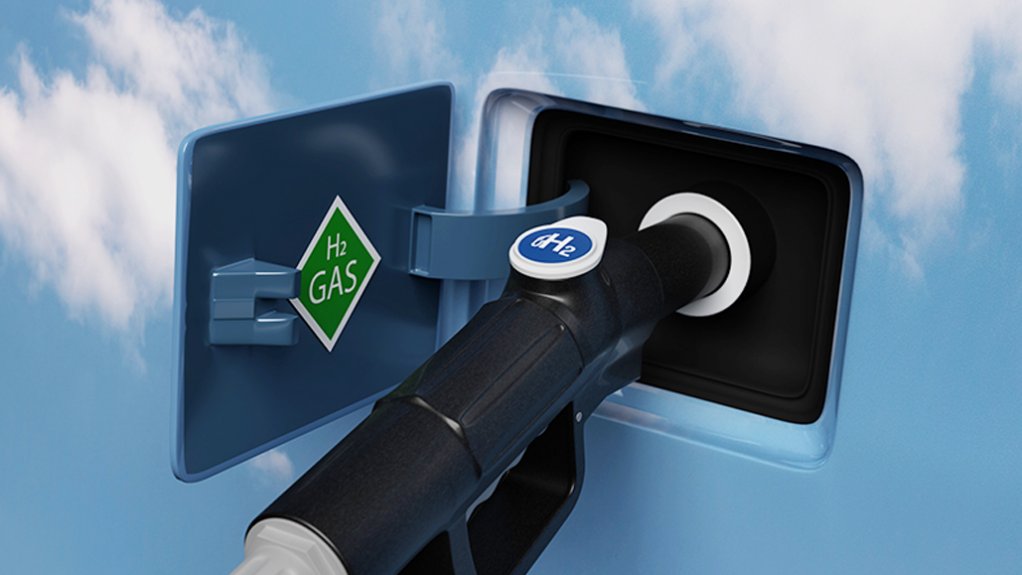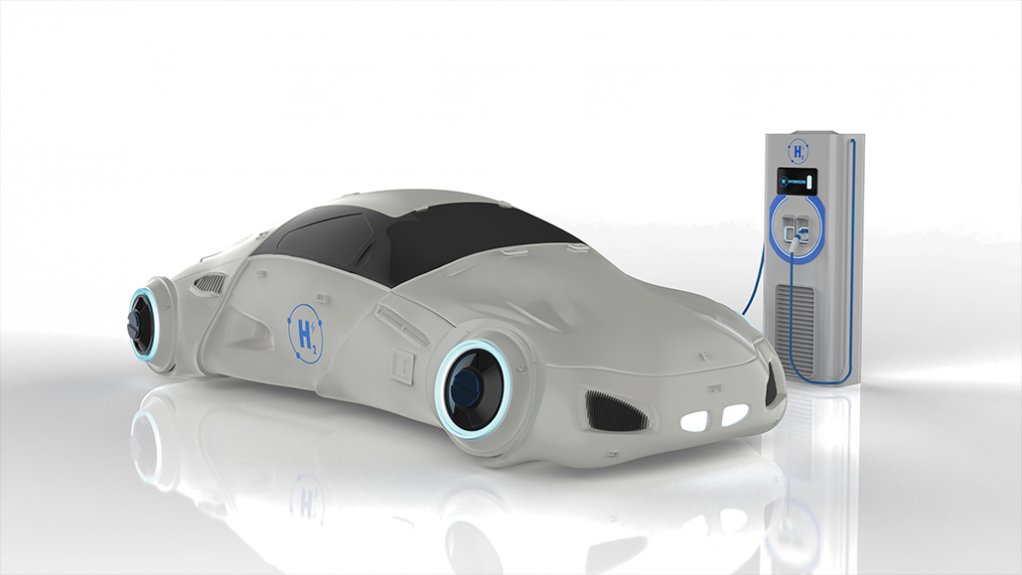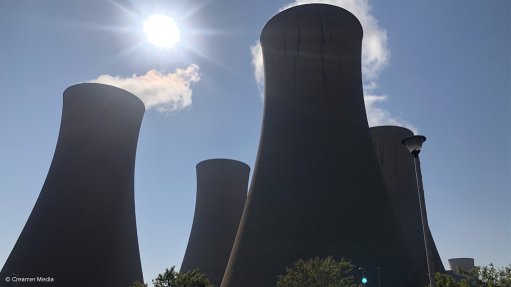Director spotlights trends in fuel cell technology



HYDROGEN TRANSITION The mining industry has paid a lot of attention to the creation of hydrogen vehicles to replace diesel fleets
CATALYST ADVANCEMENTS New catalysts may include graphene which allows better proton flow and the use of iridium rather than platinum
Fuel cells are at the forefront of interest within the domain of renewable-energy solutions, as they provide energy at a low cost, with zero emissions, thereby ensuring a meaningful impact on climate change.
However, Africa-based specialist mining services provider Ukwazi Sustainable Mining business development director Spencer Eckstein raises inquiries regarding the status of this technology and how one can ascertain whether actual progress is being made.
He explains that, at the most elementary level, fuel cells are batteries: there is an anode and a cathode and a stream of electrons between the two poles.
“What sets today apart from just three to five years ago is the remarkable diversity of metals – both battery and rare earth minerals – comprising the anode and cathode. Additionally, the catalysts within each battery, vital for accelerating the essential chemical reactions facilitating electron flow, have evolved significantly.”
All research and development (R&D) efforts are focused on developing batteries that are smaller (and lighter), more durable and provide a bigger energy “bang for your buck”.
However, Eckstein observes an additional development: the emergence of what is referred to as “black mass” – the residual materials from batteries that will be recycled and reused.
He notes the mining industry has paid a lot of attention to the hydrogen economy and the creation of hydrogen vehicles to replace diesel fleets, using electrolysis, with platinum as a catalyst, with some success.
As such, Eckstein highlights some of the latest trends regarding fuel cycles, including high temperature cells, such as solid oxide fuel cells (SOFC), which have gained attention owing to their capacity to directly use hydrocarbon fuel cells without the need for costly purification processes typically associated with traditional fuel cells that operate at lower temperatures.
Additionally, a significant amount of R&D has been devoted to making fuel cells smaller, lighter, more compact, and portable, particularly for recharging and to reduce the size and scale of the infrastructure needed to recharge fuel cells.
Carrier fuels, meanwhile, have been prompted by the challenge of transporting hydrogen in gaseous or liquid form. Therefore, Eckstein notes, “a prominent industry trend involves the quest for catalysts or ‘carrier fuels', like ammonia, to enable the safe and efficient transportation of hydrogen”.
Further, in terms of product substitution, he explains that battery manufacturers are experimenting with different combinations of metal or minerals, for example, to reduce or replace platinum in a catalytic converters (which reduces emissions from vehicles).
“New catalysts may include graphene which allows better proton flow and the use of iridium rather than platinum. Some researchers have begun to look at microbial fueled batteries, [such as] various bacteria or algae that generate electricity organically.”
Further to this, Eckstein adds that other fuel cell manufacturers are investigating methanol as a possible direct replacement for hydrogen.
“Chinese fuel manufacturers prioritise portability, dedicating a significant portion of their R&D investments to enhance proton exchange membrane fuel cells for hydrogen-based systems. The advantage lies in the compact, efficient and easily rechargeable nature of hydrogen fuel cells, provided the necessary infrastructure is in place, and they boast zero emissions,” he comments.
Lastly, several vehicle manufacturers are exploring innovative designs by integrating solar panels into the car's boot, roof and bonnet, in conjunction with hydrogen fuel cells, as an alternative to traditional combustion engines. In this instance, the hydrogen is also produced using renewable-energy source.
“While hydrogen fuel cells hold promise as an exceptionally clean energy source, their environmental impact isn't always guaranteed to be minimal. The production process, which relies on electrolysis and platinum, necessitates [significant] land and water resources and mandates careful consideration of associated environmental impacts and resource intensity,” he states.
As such, Eckstein finds that evaluating the sustainability of hydrogen fuel cells requires a holistic assessment of the entire value chain.
“This entails examining the sources of raw materials, the production process, distribution, consumption, and the recycling and reuse of all inputs and outputs, including waste materials and by-products, before arriving at a conclusive determination.”
Article Enquiry
Email Article
Save Article
Feedback
To advertise email advertising@creamermedia.co.za or click here
Announcements
What's On
Subscribe to improve your user experience...
Option 1 (equivalent of R125 a month):
Receive a weekly copy of Creamer Media's Engineering News & Mining Weekly magazine
(print copy for those in South Africa and e-magazine for those outside of South Africa)
Receive daily email newsletters
Access to full search results
Access archive of magazine back copies
Access to Projects in Progress
Access to ONE Research Report of your choice in PDF format
Option 2 (equivalent of R375 a month):
All benefits from Option 1
PLUS
Access to Creamer Media's Research Channel Africa for ALL Research Reports, in PDF format, on various industrial and mining sectors
including Electricity; Water; Energy Transition; Hydrogen; Roads, Rail and Ports; Coal; Gold; Platinum; Battery Metals; etc.
Already a subscriber?
Forgotten your password?
Receive weekly copy of Creamer Media's Engineering News & Mining Weekly magazine (print copy for those in South Africa and e-magazine for those outside of South Africa)
➕
Recieve daily email newsletters
➕
Access to full search results
➕
Access archive of magazine back copies
➕
Access to Projects in Progress
➕
Access to ONE Research Report of your choice in PDF format
RESEARCH CHANNEL AFRICA
R4500 (equivalent of R375 a month)
SUBSCRIBEAll benefits from Option 1
➕
Access to Creamer Media's Research Channel Africa for ALL Research Reports on various industrial and mining sectors, in PDF format, including on:
Electricity
➕
Water
➕
Energy Transition
➕
Hydrogen
➕
Roads, Rail and Ports
➕
Coal
➕
Gold
➕
Platinum
➕
Battery Metals
➕
etc.
Receive all benefits from Option 1 or Option 2 delivered to numerous people at your company
➕
Multiple User names and Passwords for simultaneous log-ins
➕
Intranet integration access to all in your organisation




















